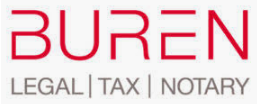
Since 2010, the Global Law Experts annual awards have been celebrating excellence, innovation and performance across the legal communities from around the world.
posted 3 years ago
On 17 October 2020, China approved the fourth amendment to the China Patent Law (CPL), which will take effect on 1 June 2021. It has been 12 years since the last amendment was made in 2008, and there are many notable changes made in this new Amendment. With the introduction of the new protection systems, China’s patent protection has reached an unprecedented level.
Several key points of the Amendments are outlined below:
Partial Design Allowed
“Partial Design” is officially launched in China. Compared to the current CPL where an applicant is not allowed to file a partial design of a product for patent protection, Article 2 of the Amendment stipulates that, “a design means any new design of the shape, the pattern, or their combination, or the combination of the color with shape or pattern, of the whole or part of a product, which creates an aesthetic feeling and is fit for industrial application”. This Article makes partial design become eligible subject matter of a design patent.
This is in line with international practice like in the USA, Europe, UK, and East Asia. Due to the licensing of this new type of design patent, it can be expected that the design application activities will increase significantly in the future. In addition, from the perspective of review practices, after the introduction of partial design, the question of “whole or part” will no longer bother reviewers, thus both patent application and examination will focus on the determination of novelty and non-obviousness of the design and draw more objective and accurate conclusions.
Preliminary Pharmaceutical Patent Linkage System
The pharmaceutical patent linkage system means that the process of approving the registration of generic drugs “links” with the patents of the original drugs to avoid infringement of the patents of the original drug. The patents linkage system acts as a mechanism for the early settlement of disputes over pharmaceutical patents.
By referring to the linkage system, a new article is added as Article 76 in the Amendment, which stipulates that the applicant for drug marketing authorization and the relevant patentee or interested party can bring a patent infringement dispute before the court, and China’s pharmaceutical regulatory Bureau will decide on whether to suspend the regulatory approval process for said medicine based on the judgment from the court.
Applicants for drug marketing authorization and relevant patentees or interested parties may also request administrative rulings from the China National Intellectual Property Administration (CNIPA) for disputes over patent rights related to the drugs being registered. The drug regulatory department of the State Council will work closely with CNIPA to make specific guidelines on the patent linkage system in the very near future .
Pharmaceutical Patent Term Extension
Compared with ordinary commodities, the regulatory approval period of drug patents is relatively time-consuming, which eventually shortens the patent protection period of drug patents. The Amendment introduces the compensation of the drug patent approval period, which is conducive to stimulate the innovation of drug enterprises.
The total compensation period is a maximum of 5 years, although the criteria for assessment have yet to be defined. For new pharmaceuticals being granted regulatory approval to be put on the market, the total patent term shall not exceed 14 years (Article 42).
Other notable changes
Statutory Damages Compensation Raise to CNY Five Million
The rules in relation to willful infringement and associated punitive damages are included in Article 71 of the Amendment.
According to this Article, statutory damages for willful patent infringement have been increased from CNY 1 million to CNY 5 million. Due to the high standard of evidence to prove loss or profit, at present most successful patent infringement cases are awarded statutory damages rather than actual damages or profit accounting, thus this modification has important practical value in China’s patent litigation practice.
The patentees are not suggested to rely solely on the statutory compensation system. Legal remedies can be obtained only when the patentee actively provides evidence to prove its actual losses or the profits from the infringement. Fortunately, the Amendment also improves the relevant provisions on the allocation of the burden of proof and the calculation methods for damages: Article 71 further stipulates that in order to determine the amount of compensation, the court may order the infringer to provide the account books and materials related to the infringement act when the right holder has tried its best to provide evidence and the account books and information related to the infringement are mainly in the hands of the infringer; if the infringer refuses to provide the account books or materials, or provides false ones, the court may determine the amount of compensation based on the claims of the right holder and the evidence provided.
Establishment of Open License System
The Amendment introduces the patent open license system under Article 50 to 52, which is also widely used in the United States and Europe. The more significant impact of open license on enterprises is that patentees are granted a corresponding reduction or exemption from annual patent fees during the period of open license. When the number of patents owned by a company accumulates to a certain extent, the annual patent maintenance fee will be a huge burden. If the company is willing to open patent licensing, it can save a lot of annual patent fees, but also can promote the patent innovation.
Dual Protection of Patents
China has always implemented a system of “Dual Protection” of intellectual property rights, that is, infringement can be brought to court or the local patent administrative office. The Amendment further expands the scope of patent administrative protection.
In particular, CNIPA is now authorized to handle national patent infringement cases as stipulated under Article 70.
Extension of Patent Term Due to Delay in Patent Examination
Article 42 of the Amendment provides that if the patent examination is unreasonably delayed, the patentee can request compensation for the patent term. For invention patent applications, if more than four years have passed since the filing date or more than three years have passed since the request for substantive examination, the applicant may apply for compensation for the delay in patent examination. However, delays caused by the applicant’s errors should be excluded.
Good-Faith Principle
Patentees shall comply with the principle of good faith and trustworthiness in applying for a patent and exercising their patent rights. Abuse of patent rights shall not harm public interest or the legitimate rights and interests of others. Abuse of patent rights to eliminate or restrict competition which constitutes monopoly shall be dealt with pursuant to the Anti-monopoly Law.(Article.20).
Emergencies
In order to better respond to emergencies and extraordinary situations such as epidemic prevention and control, promote the timely application of relevant inventions in the treatment of diseases. The provision that “where the patent is initially made public for the purpose of public interest in the event of a national emergency or extraordinary circumstance” is added to the CPL under the circumstances in which the exception of novelty shall not be lost(Article.24).
Conclusion
The fourth amendment to the Patent Law embodies the intention and practical action of the Chinese government to strengthen the protection of intellectual property rights. It provides a strong legal guarantee for further stimulating innovation in the whole society and will further improve the effectiveness of the current patent system.
Author


There are no results matching your search.
Resetposted 19 hours ago
posted 3 days ago
posted 3 days ago
posted 4 days ago
posted 7 days ago
posted 1 week ago
There are no results matching your search.
ResetSign up for the latest advisory briefings and news within Global Advisory Experts’ community, as well as a whole host of features, editorial and conference updates direct to your email inbox.
Naturally you can unsubscribe at any time.
Global Advisory Experts is dedicated to providing exceptional advisory services to clients around the world. With a vast network of highly skilled and experienced advisers, we are committed to delivering innovative and tailored solutions to meet the diverse needs of our clients in various jurisdictions.